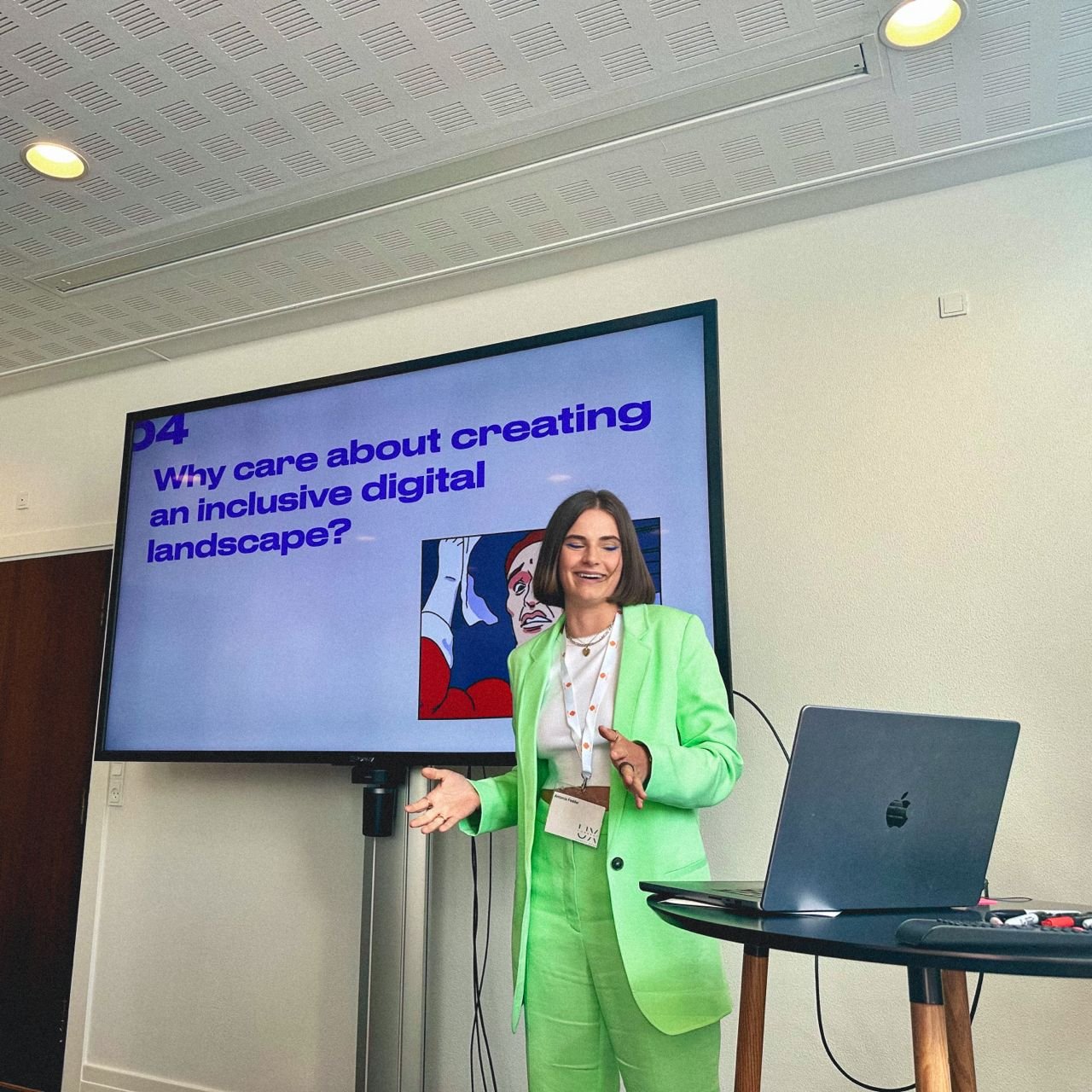Design can change the world!
At this year‘s UX Connect in Århus I was given the amazing opportunity to talk about inclusive and accessible UX - specifically about sustainable solutions for Bias-Free Technology 💫
An overwhelming amount of digital products and services lack adequate accessibility features. These tools we use everyday also keep enforcing gender or racial biases.
Here are some key takeaways of my talk:
ℹ️ We all have bias. It’s important to recognize that biases are inherent and developed as we grow up.
ℹ️ Neglecting accessibility has far-reaching consequences, leading to exclusion, limited participation, missed business opportunities, and reduced user satisfaction.
ℹ️ Overcoming machine bias is vital for inclusive digital design. By ensuring technology treats all users fairly and avoids amplifying societal biases, we can promote equity and equal access for diverse user groups.
ℹ️ The key lies in questioning, learning, and utilizing tools, diverse perspectives, and feedback. We should challenge our own preconceived notions, recognizing that our perspectives may be limited. Seeking diverse inputs and perspectives helps expand our thinking and create more inclusive designs.
This was my first opportunity to speak at a conference - at what an amazing one at that!
I got the chance learn from some incredible colleagues - Here are my key takeaways from my fellow speakers at UX Connect:
📌 Question everything!!
📌 Challenge your cultural bias. The only thing more important than designing for diversity, is to diversify design.
📌 We have to move from a human toward a humanity and environmental centred design
approach
📌 Have fun in order to learn
📌 Embrace building accessible content and an efficient way to receive customer feedback
from all over the world
📌 Scientists are saving the world - so can good design!
📌 The key bøvl component for sustainable IT solutions it not knowing what the actual
sustainable solutions are due to lack of data and standards
📌 You have to be able to talk cross disciplines - Bring behavioural science into design!




